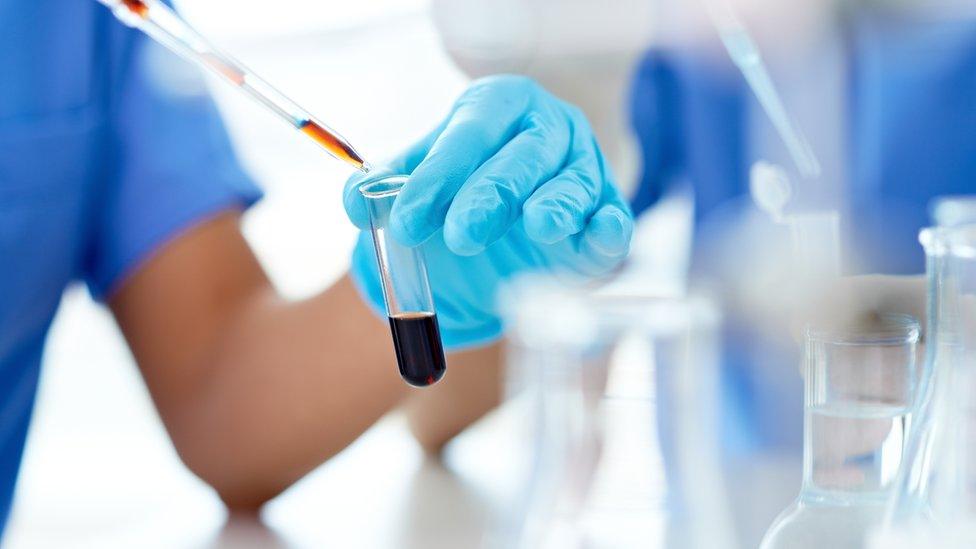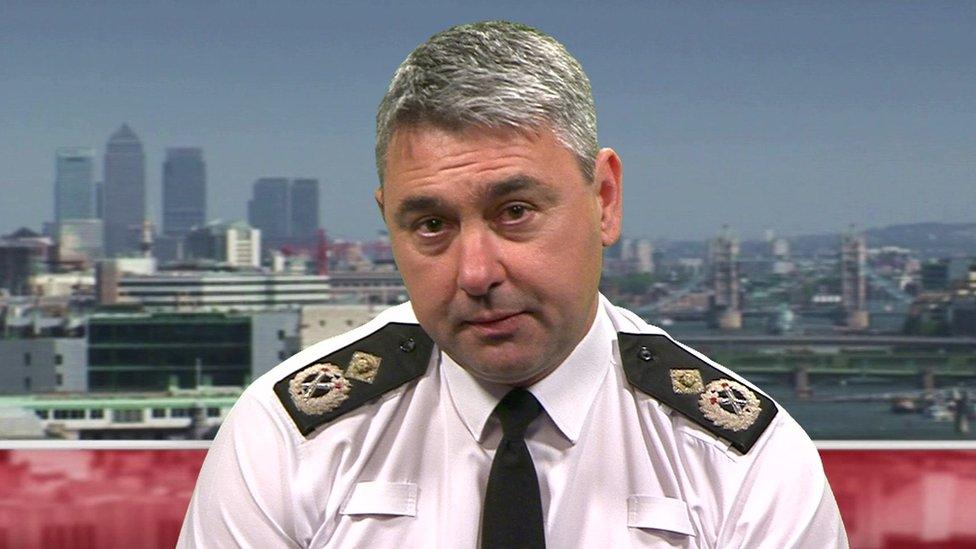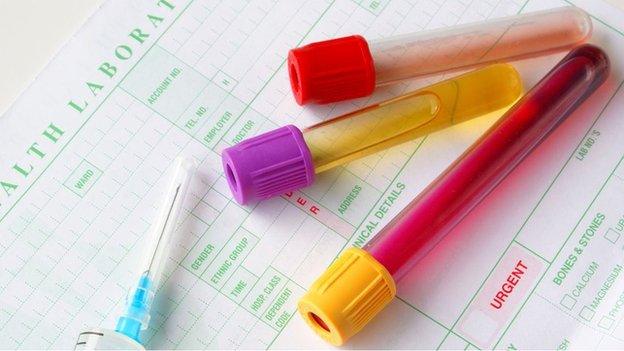'Manipulated' drug test data probe extended - police
- Published

A probe into the alleged manipulation of drug test result data is now looking at thousands more blood samples.
The National Police Chiefs Council (NPCC) says "scores" of convictions could be overturned in cases where no samples exist to be retested.
While the "vast majority" of the 6,000 samples are from drug-driving cases, some could involve rape and murder.
If retests show toxicology levels were underestimated, suspects who were not charged could now be prosecuted.
The investigation centres on Randox Testing Services (RTS), a laboratory used by police forces across the UK to analyse samples used in prosecutions.
Two employees at the Manchester laboratory, aged 31 and 47, were arrested earlier this year on suspicion of perverting the course of justice. The men were later bailed.
'Big problem'
Randox Testing Services is part of the Northern Ireland-based Randox Laboratories group.
At the time, police chiefs said 484 cases handled by the firm since November 2015 may have been affected.
Now blood samples dating back to 2014, when the two men started working for RTS, are also forming part of the inquiry.
Of those samples, 90% still exist. But BBC home affairs correspondent Danny Shaw said: "There's a big problem with the samples that have not been retained.
"If someone has been convicted on the basis of a sample result, and that sample can't be retested, then there's going to be a strong possibility their conviction will be quashed."
The samples were taken from suspects and alleged victims and could also include cases that went to coroners' courts, he added.
He said it was unlikely a murder case would hinge on a drugs test, but it could have more of an impact on a rape case if drugs were suspected to have been involved.
Some court cases are having to be postponed to allow for the data to be retested.

Deputy chief constable James Vaughn said the NPCC was 'very concerned'
The NPCC said it was working with the Forensic Services Regulator, Crown Prosecution Service and the Home Office to prioritise samples for retesting.
Deputy chief constable James Vaughn of the NPCC said: "It is important that we nationally prioritise retesting of samples to ensure that resubmitted samples do not flood the market and impact on other important ongoing cases.
"While there has been limited retesting to date, the evidence has shown that in the vast majority of cases, the original reporting was accurate. "
The numbers affected "could change" as the investigation progresses, he said.
'Undermined integrity'
He told the BBC they were "very concerned" by the issue.
"It would appear that staff at that lab have criminally corrupted or manipulated data in the results from some of those searches, which has undermined the integrity of a number of cases," he said.
He added that they were taking a "very cautious approach" to the issue because "the public must have confidence" in the system.
RTS has said it is fully cooperating with the investigation, saying in February that it was "working tirelessly to fully assess the impact and implications for each case" and that "where possible", samples would be retested.
It has arranged for other accredited laboratories to carry out the retesting.
Accreditation at their Manchester lab was suspended in March, while RTS voluntarily suspended accreditation at its Northern Ireland site.
The company has said its laboratory in Crumlin now forms part of the investigation. However that lab does not test samples for Northern Ireland criminal cases.
- Published19 February 2017

- Published21 February 2017
